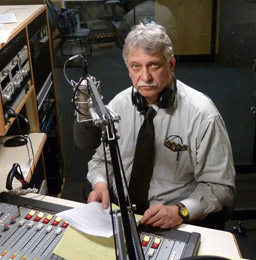The death of Special Representative for Afghanistan and Pakistan Richard Holbrooke came at a rather untimely moment. The Obama Administration was putting the final touches on the strategic review of what is dubbed “Af-Pak” policy, and Holbrooke was a key participant in that.
Holbrooke was known for an outsize ego and abrasive manner, and was nicknamed “the Bulldozer.” But he was also an immensely talented diplomat. Few knew how to cajole, wheedle, and plead among intractable parties better than he. The testament to that is the 1995 Dayton Accords ending the war in Bosnia. Many tend to forget about it now, but it was an awful conflict, rent through with ethnic and religious tensions. Yet Holbrooke got sworn enemies to hammer out an agreement. Holbrooke died one day before the 15th anniversary of those accords.
But the job as troubleshooter for the Af-Pak diplomatic portfolio is a tougher nut, in many ways, to crack. The job Holbrooke held was ill-defined from the beginning. He was reporting to one person – Secretary of State Hillary Clinton – and he was sometimes at odds with the ambassadors in Islamabad or Kabul. He also clashed with then-National Security Advisor James Jones and Afghan President Hamid Karzai, especially over Afghan government corruption.
War-zone diplomacy is a particularly difficult task. Holbrooke’s roots were in this specialty, serving as a young foreign service officer in Vietnam. He often raised Vietnam when talking about Afghanistan, not to make parallels – he was careful to say that “Afghanistan is not Vietnam” – but to drive home the horrible price of armed conflict. It was an experience that threaded through his experiences from Bosnia to Afghanistan.
But, had he lived, could he have negotiated a Dayton-style accord in Afghanistan? Could he have gotten the Taliban, or at least some of the less savory elements of it, and the Afghan government to agree to a political deal?
That’s a bit more of a problematic question. Afghanistan is not Bosnia, either. It is questionable whether the head-butting style that Holbrooke employed in Dayton would have worked in the Afghan milieu. As former deputy assistant secretary of state for South Asia Teresita Schaffer said to me, “Afghans don’t like to be forced.” In fact, some question whether anybody could broker an Afghan peace deal.
Any hope of reaching such a deal would likely need the services of a super-diplomat as interlocutor – someone like Richard Holbrooke. But diplomats of his stature are in very short supply anywhere in the world.


2 responses to “Holbrooke Death Leaves Hole in Afghan Policy”
Holbrooke was a hero God bless him, but concerning af-pak situition, I would say let us go back to the times American and Russian cold war which Afghanistan was chosen a play ground for so called ‘ulldozers’that we paid a very expensive price. Today or Tommorrow Pakistan will show his reall identity, like they showed to Afghans how they are capable of distruying a nation which they did to afghans. Yesterday ISI did that to us tomorrow it will be your turn. please open your eyes for gods seek, and control your made dogs. I have the feeling they are taking hostage af and american by keeping al and taliban supporting.
I’d like to share my deep condolences to Holbrooke’s family for Holbrooke death. He is a great person, I like him and most of the people around the world who love peace really unhappy for his death. In facts, no one can alive forever, but his kindly done is so short for us. I wanted him to be alive as long as possible. But now, everything has gone, I hope his spirit will be in the heaven plance.
Cambodian people love him because we love peace, we don’t want the war, we hate fighting…, We don’t know how many people who is like Holbrooke. At least, the President Barack Obama is the person who loves peace also.
I am sorry because my English is not so good. But I still want to share my deep condolence to Holbrooke Death. I regret him…